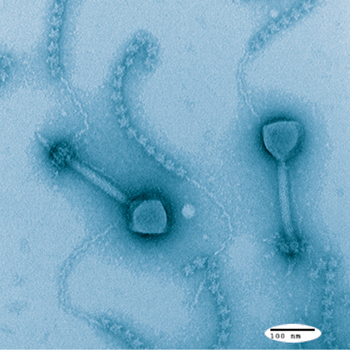Ocean phytoplankton fix at least half of the carbon on the planet, and ocean viruses are responsible for the largest flux of carbon in the oceans through microbial cell lysis. Even though the viruses outnumber microbial cells 10 to one, however, the processes by which host and virus interact remains poorly understood. To better understand the impact of ocean cyanobacterial viruses on global photosynthesis and on other biogeochemical processes, researchers intend to sample viral community genomes collected from the Mediterranean Sea. The project would be the first metagenomic characterization of viral communities from the region, and is made possible by the Tara Oceans expedition, a three-year, large-scale survey of the global ocean surface and waters associated with the sunlit region between the atmosphere and the deep oceans known as the photic zone. The expedition started in late 2009 and the sequences of the samples collected will help researchers consolidate baseline ocean data of the life forms ranging from viruses to prokaryotes to protists and metazoans. Additionally, the sequence data will be correlated with other existing marine genomic data sets.

Photo: Marine virus, sample from Tara Station 23 & 30,
isolated from Synechococcus. Image by Jennifer Brum, Tucson Marine Phage Lab
Principal Investigators: Matthew Sullivan, University of Arizona
Program: CSP 2010